Emma Thompson Calls Out Hollywood for Weight Pressure: Dr. Robyn Silverman on Good Morning America
We need people in the limelight to speak up about weight obsession, body image and eating disorders. Thankfully, more and more people have been stepping up. I was on Good Morning America this morning- talking about just that.
Most recently, Emma Thompson, award-winning actress, calls the weight pressures in Hollywood “evil.” She told the Swedish TV show, Skavlan, that:
“It is evil what is going on and happening out there, and it is getting worse…The anorexia… there are so many kids, girls, and boys now, and actresses who are very very thin that are into their 30’s and simply don’t eat. They don’t eat.”
Thompson also revealed that when she worked on the movie “Brideshead Revisited,” she heard one issue of dieting pressure that made her stand up for another fellow actress. She simply couldn’t keep quiet about it. I’m glad she didn’t.
“There was a wonderful actress I was working with and the producer said to her, ‘Will you lose some weight? She was absolutely exquisite. I said to them, ‘If you speak to her about this again, on any level, I will leave this picture, you are never to do that.'”
Any time a high profile person speaks up and says “we are more than our looks” and “this pressure to lose weight and be thin” is not okay, s/he does something very important for women and girls (and boys!) everywhere. She tells them, they are enough as they are.
It’s vital that we have conversations about these pressures and about the way media influences how people think about weight and size. I encourage parents to use what they see in the press as springboards for discussion- what do your children think about these pressures? What do they think about what Emma Thompson said? These conversations are not just important for girls and women but for boys and men too– it’ll take everyone to change these norms and unrealistic expectations.


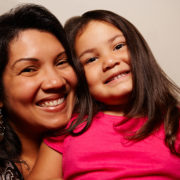
 So many of my best “body image” conversations with my daughter happen in the bathroom while we are getting ready for bed. It is where I’ve gotten the question;
So many of my best “body image” conversations with my daughter happen in the bathroom while we are getting ready for bed. It is where I’ve gotten the question; 

 I was recently on the Today Show talking about Discovery Girls and their misstep in publishing an article on swimsuits for specific body types. Some people thought it was a big deal– others did not. What’s your view?
I was recently on the Today Show talking about Discovery Girls and their misstep in publishing an article on swimsuits for specific body types. Some people thought it was a big deal– others did not. What’s your view?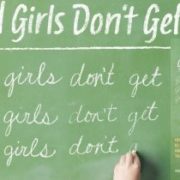
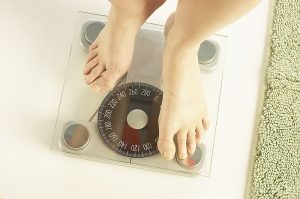 How do you know if your child may have an eating disorder? Here are some signs that may indicate a problem.
How do you know if your child may have an eating disorder? Here are some signs that may indicate a problem.

 A few days ago, social media was atwitter with comments about the new Sports Illustrated cover featuring plus-model Ashley Graham. Cheryl Tiegs, former SI swimsuit model had criticized the magazine for putting Ashley Graham on the cover. Tiegs, who is now 68 years old,
A few days ago, social media was atwitter with comments about the new Sports Illustrated cover featuring plus-model Ashley Graham. Cheryl Tiegs, former SI swimsuit model had criticized the magazine for putting Ashley Graham on the cover. Tiegs, who is now 68 years old, 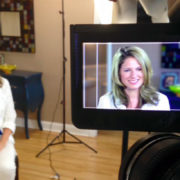
 spliced for time-sake and the initial sentence didn’t exactly reflect how I feel about the possible effects of mannequin size on body image. Whoops! So let me clarify! I do not feel that exposure to thin mannequins leads to poor body image. I do feel that repeated exposure to very thin models, very thin mannequins and messaging about the merits of dieting and thinness can have effects on the body image of many girls and women (my original quote). You’ll see more on my view below!
spliced for time-sake and the initial sentence didn’t exactly reflect how I feel about the possible effects of mannequin size on body image. Whoops! So let me clarify! I do not feel that exposure to thin mannequins leads to poor body image. I do feel that repeated exposure to very thin models, very thin mannequins and messaging about the merits of dieting and thinness can have effects on the body image of many girls and women (my original quote). You’ll see more on my view below!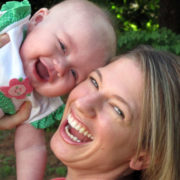
 We all get that feeling that we are messing up our children sometimes. I do too. Often…if I’m being honest.
We all get that feeling that we are messing up our children sometimes. I do too. Often…if I’m being honest.